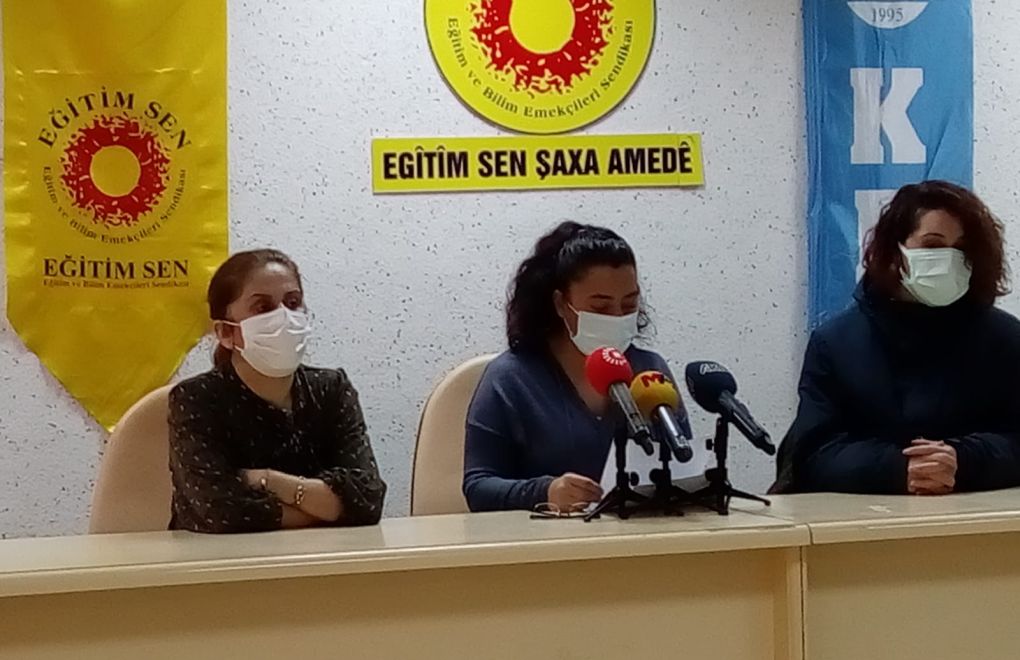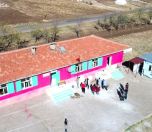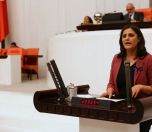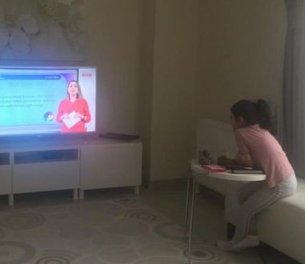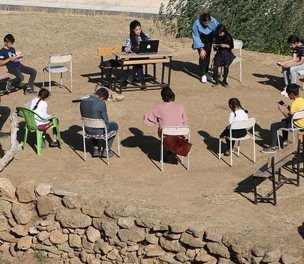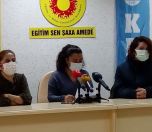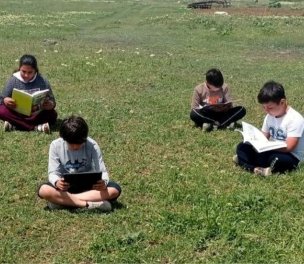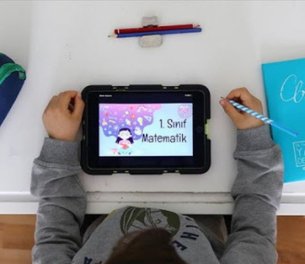* Photo: Eğitim-Sen
Click to read the article in Turkish / Kurdish
Education and Science Laborers' Union (Eğitim-Sen) branches in Turkey's Kurdish-majority southeastern province of Diyarbakır have released a report regarding the first semester of 2020-2021 school year, as the first semester came to an end last Friday (January 22).
While the report has been shared with the public at a press conference held at the union's Branch No. 1, the joint statement has been read out by Eğitim-Sen Branch No. 1's Secretary for Education Hatice Efe.
Efe has noted that during the novel coronavirus (COVID-19) outbreak, especially disadvantaged groups have problems with accessing education.
Referring to distance education, the statement has raised concerns that the children of low-income and poor families, those living in rural areas, seasonal agricultural workers, refugees and migrants as well as the children of disadvantaged groups and the children who cannot get education in their mother languages are deprived of public and free education.
According to the statement of the union's Diyarbakır branches, over 200 thousand students in Diyarbakır and over 6 million students across Turkey had problems with accessing distance education as they did not have tablets, computers, smartphones or Internet connection.
'4,300 students cannot continue formal education'
Efe has indicated that there are 492,975 students in total in Diyarbakır and 47,228 of them graduated from the 8th grade, namely the secondary school. However, 4,300 of these 47,228 secondary school graduates have been unable to enroll in an institution for further formal education.
According to Efe, the Provincial Directorate of Education has so far distributed 4,500 tablets in Diyarbakır to help students with distance education. She has raised concerns that no solutions have been developed for 195 thousand students who cannot access education in this process.
"It has been particularly striking that the efforts not made to solve the students' problems with accessing distance education were made to guide them to elect certain lessons," Efe has noted further:
"It means that the most fundamental principles of education, especially the secular education, as well as the different belief groups in Turkey and the principle of equal citizenship have been openly disregarded."
'Mother language poses a serious problem'
Efe has emphasized that "the problem of education in the mother language has a negative effect on students' access to education."
"Getting distance education in a language not used for communication at home has made the sustainability of education in domestic life all the more impossible," Eğitim-Sen's Efe has noted, adding that this process has led students to drift away from education.
Noting that the Education Ministry's failure to make education accessible for every citizen and to allocate budget for education will lead to the loss of a generation, Efe has concluded that, in the current situation, the Ministry of Education cannot manage the education process.
Listing the problems experienced in Diyarbakır on a local basis, she has reiterated that students could not elect their free electives freely. (RT/SD)




